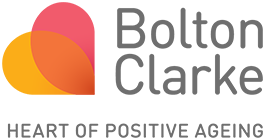HOW-R-U? project targets post-discharge social isolation

Bolton Clarke Research Institute (BCRI) will work with Melbourne’s Northern Hospital and volunteer organisation Friends for Good to roll out a peer support program aimed at reducing social isolation and loneliness for older people discharged from hospital.
The HOW-R-U? project, funded through the Better Care Victoria Innovation Fund, builds on an earlier successful pilot undertaken by BCRI Principal Research Fellow Professor Judy Lowthian.
The project will involve community members, volunteers and emergency department personnel in designing an intervention that matches patients with volunteers who will provide weekly telephone support for three months after hospital discharge.
Professor Lowthian said addressing social isolation and loneliness is important for improving health outcomes.
“Older people experiencing social isolation, loneliness or depressive symptoms are more likely to be at risk of poor health and increased hospitalisation,” she said.
“These factors are not currently routinely screened for during hospital attendance, which means vulnerable older people are often discharged to the community with inadequate social support.
“Loneliness and social isolation have been shown to be more harmful to health than the effects of smoking 15 cigarettes a day, impacting cardiovascular health and increasing the risk of dementia.”
Telephone support has been found to reduce feelings of social isolation, loneliness and depression and to improve quality of life.
“The HOW-R-U? program involves identifying symptoms of social isolation, loneliness and depression in older people presenting to Northern Hospital,” Professor Lowthian said.
“Individuals are matched with a peer volunteer who calls them weekly for 12 weeks.
“Work has already begun to co-design the roll-out of the interventions, which will create opportunities for the provision of social support and referral to community-based services where appropriate.”

